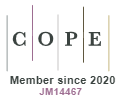Prospective Analysis and Critique of the Territory of Araquari: The Relationship Between Sustainability Criteria in the City Master Plan and Territorial Sustainable Development (TSD)
DOI:
https://doi.org/10.5585/geas.v3i2.110Keywords:
Social Actors, Municipal Master Plan, Sustainability Criteria, Sustainable Territorial Criteria (DTS).Abstract
The article deals with the prospective analysis and criticism for the territory of Araquari (Santa Catarina) according to the sustainability criteria of Ignacy Sachs and the Master Plan in the field of Sustainable Territorial Development (DTS). The research is qualitative and exploratory and uses a socio-historical context of Araquari. The objective is to identify the potential of the territory and to highlight the role of the management of organizational settings and social transformations, during an automotive factory installation in 2014 (Bayerische Motoren Werke - BMW). Through evaluation of the sustainability criteria, the Master Plan of the municipality is assessed with regard to the managers and civil society, state and market, with terms and Reflections of DTS and the expectations and challenges in view of the managers. The research reports on aspects of Brazilian municipalities that are home to complex automotive and crossed processes with the expectation that positive and similar processes should happen in Araquari. The study concludes with the need to comply to the letter of the Master Plan by all stakeholders in accordance with its guidelines. It is essential that the following requirements be addressed: the social functions of the city, social function of property, sustainability, equality in social justice, and democratic and participatory management.Downloads
Downloads
Published
2014-08-01
How to Cite
Silva, A. F. da, & Pereira, M. F. (2014). Prospective Analysis and Critique of the Territory of Araquari: The Relationship Between Sustainability Criteria in the City Master Plan and Territorial Sustainable Development (TSD). Revista De Gestão Ambiental E Sustentabilidade, 3(2), 01–15. https://doi.org/10.5585/geas.v3i2.110
Issue
Section
Artigos
Views
- Abstract 188
- PDF (Português (Brasil)) 112










